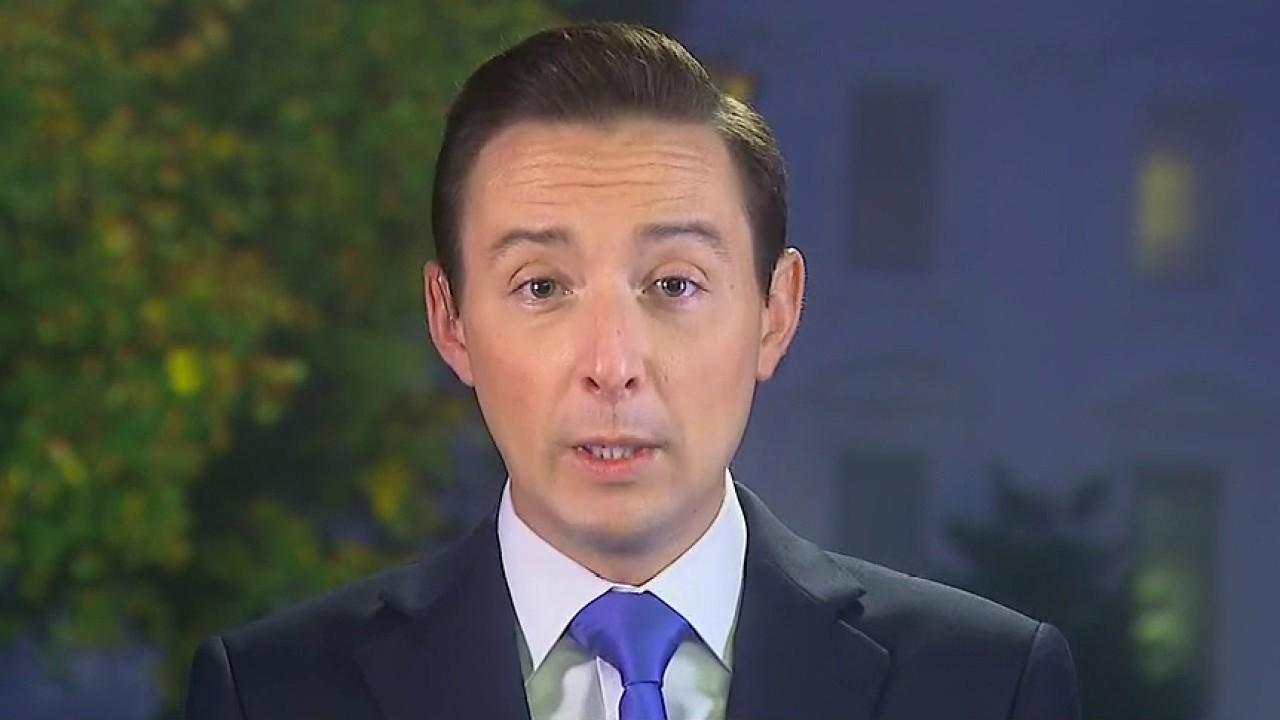Coronavirus relief talks have entered a 'new phase' as Dems, White House look to cut deal in next 48 hours: Meadows
Negotiations have entered a more 'technical' side of 'trying to get the language right,' Meadows said
Coronavirus relief negotiations have entered a "new phase," as Trump administration officials and Democratic leaders look to cut a deal on another round of emergency aid in the next 48 hours, White House chief of staff Mark Meadows said Wednesday.
"I am optimistic," Meadows said. "We do share one goal, and that is hopefully to get some kind of deal in the next 48 hours or so."
Over the past 24 hours, Meadows said, negotiations have shifted toward crafting specific language for the legislation, so long as the two sides can agree upon a final spending number. The White House most recently proposed an aid package worth $1.8 trillion — its most expensive offer to-date — but President Trump indicated on Tuesday that he wanted a package with an even bigger price tag than Democrats' $2.2 trillion package.
"I can tell you that the negotiations have entered a new phase, which is more on the technical side of trying to get the language right if we can agree upon the numbers," Meadows said. "We’re still apart. Still a number of issues to work on, but the last 24 hours have moved the ball down the field.”
FED'S POWELL URGES MORE FEDERAL STIMULUS TO HELP ECONOMY RECOVER FROM PANDEMIC
Democrats and Republicans sharply disagree over the size and scope of another relief bill and are billions of dollars apart in their proposals, unable to reconcile key policy differences on issues such as a virus testing plan, aid to state and local governments and tax cuts for low- and middle-income families.
House Speaker Nancy Pelosi spoke with the Trump administration's top negotiator, Treasury Secretary Steven Mnuchin, for about an hour on both Monday and Tuesday. Although a deal was not reached by Pelosi's self-imposed deadline on Tuesday, her office said they are moving "closer to an agreement" and will speak again Wednesday, raising hopes of a broad agreement in the coming days.
The committee chairs have also been tasked with resolving differences "about funding levels and language" before Pelosi and Mnuchin speak again on Wednesday. The chairs had already been tapped to reach out to the top Republicans on their panels to begin hammering out some of the finer details of a broader deal.
Pelosi later told reporters that she hoped to finalize a bill by the end of the week: "That's the plan. That's what I would hope," she said.
PELOSI REJECTS STAND-ALONE AIRLINE VIRUS RELIEF BILL WITHOUT BROADER AID DEAL
But key hurdles remain, including funding for state and local governments -- Meadows said it was the "biggest issue" -- and potential pushback from Senate Republicans, who are wary of passing a trillion-dollar aid package amid growing concerns about the nation's ballooning deficit, which is projected to hit a record-shattering $3.3 trillion this year, according to the Congressional Budget Office.
Senate Majority Leader Mitch McConnell has also emerged as an obstacle in negotiations, privately urging the White House not to settle with Pelosi before the election, according to multiple media reports published Tuesday.
For months, Congress has struggled to reach an agreement on another round of emergency relief for families and businesses — negotiations first collapsed in early August, prompting Trump to sign four executive measures intended to provide relief to families still reeling from the virus-induced crisis, including temporarily extending supplemental jobless aid at $300 a week.
But that aid is beginning to expire, and lifelines that propped up the economy in the early weeks of the pandemic — like the $670 billion Paycheck Protection Program, a one-time $1,200 stimulus check and sweetened unemployment benefits — lapsed months ago.
TRUMP REJECTS DEMS' CORONAVIRUS RELIEF PROPOSAL, CALLS OFF NEGOTIATIONS 'UNTIL AFTER THE ELECTION'
Senate Republicans are set to vote on a $500 billion plan Wednesday that includes another round of funding for a key small business rescue program, money for schools, liability protections for businesses and boosted unemployment benefits. But the legislation stands little chance of advancing: Democrats previously rejected the pared-back proposal.
Without a deal in place soon, Pelosi and other Democrats have warned it'll be too late to pass anything by Election Day — and have suggested relief may not come until the new Congress is inaugurated at the end of January.
"People in need can’t wait until February," Rep. Ro Khanna, D-Calif., tweeted last week. "1.8 trillion is significant & more than twice Obama stimulus. It will allow Biden to start with infrastructure. Obama won in 08 by doing the right thing on TARP instead of what was expedient. Make a deal & put the ball in McConnell court."




















